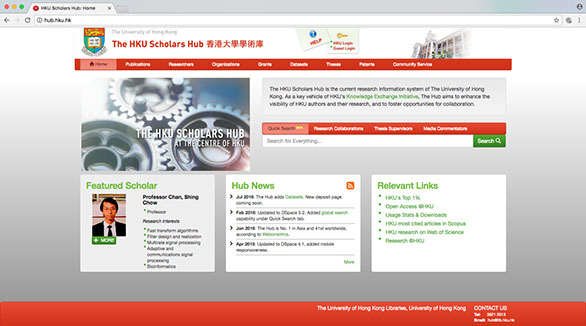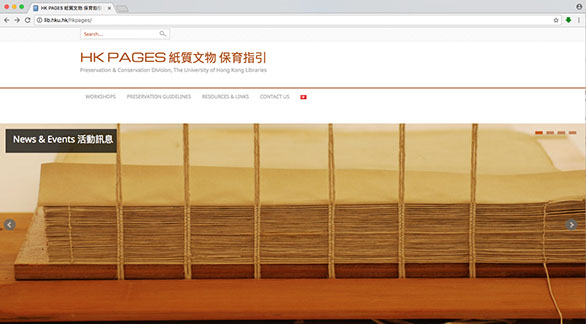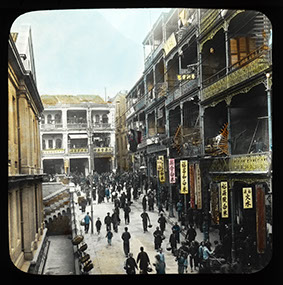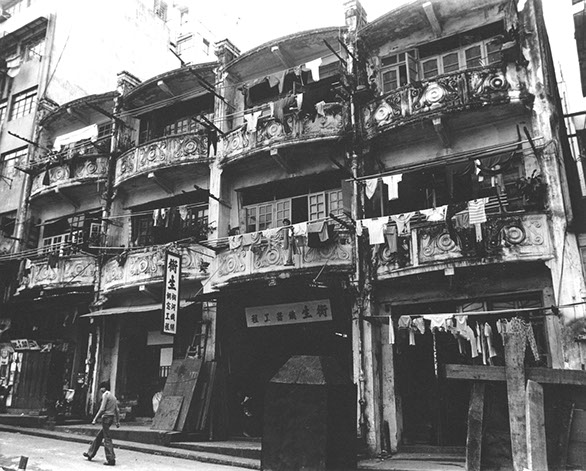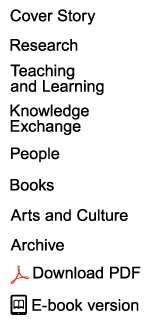Publicly-funded universities in many countries typically open their library doors to the public. But in Hong Kong, the lack of space is such a major issue that it has been difficult to pull that off. So HKU Libraries (HKUL) has gone the digital route instead to open a virtual door to its stacks and holdings.
In recent years, HKUL has launched the HKU Scholars Hub, which has become a one-stop source of information about HKU academics and their research, and uploaded 30 digital databases featuring its own materials, those of individual faculties, and joint initiatives with other universities in the region. The databases cover such topics as a war crimes tribunal, oral history archives, rare books in Chinese, the drafting history of Hong Kong’s Basic Law and, most recently, images of historical Hong Kong. The library has also launched HKPages, a website offering advice and awareness-raising on book preservation.
“One of our key objectives has been to support the community and engage in knowledge exchange,” University Librarian Mr Peter Sidorko said. “We do exhibitions, we do book talks, and we’ve been more engaged in not just promoting ourselves but promoting the institution effectively, in particular our faculty and their output.”
The jewel in the crown is the HKU Scholars Hub, which has evolved from being a collection of published faculty output into a wide-ranging searchable engine that includes information on each faculty member’s publications, conference papers, presentations, grants, knowledge exchange activities, PhD supervision, contact details, and topics that they are happy to speak to the media about.
The Scholars Hub stores over 180,000 items and in 2015–2016 alone saw nearly two million downloads, a figure likely to expand under plans to include raw research data.
“The idea is that people can replicate the findings or, if the findings are questioned, we can then say here is the original data,” Mr Sidorko said. “We are uploading this data selectively now but expect that by 2018, faculty will be putting forward a research data management plan when they submit grant applications which will specify how and where the data will be stored, whether it is accessible, and their justification.
“We’re also requiring that postgraduate students place their data on the Scholars Hub, starting with the September 2017 intake.

![]() Our overriding principle is to make the things that we digitise openly accessible, and to digitise those things that are complementary to our faculty research and that are unique to HKU Libraries'
Our overriding principle is to make the things that we digitise openly accessible, and to digitise those things that are complementary to our faculty research and that are unique to HKU Libraries'
collection. ![]()
Mr Peter Sidorko
Collaborating with faculties
The range of digital projects is also expanding. HKUL has started collaborating with faculties to showcase their research and other work. The Hong Kong War Crimes Trials collection, for example, is a collaboration with the Faculty of Law and includes the case files of 46 trials over war crimes committed during the Second World War. Another collaboration is the Dental Community Health Projects collection, which includes Faculty of Dentistry research of interest to the general public as well as community outreach projects.
Most recently, the HKU Image Database was launched with more than 5,000 images from HKUL collections such as those of the Royal Asiatic Society Hong Kong Branch, Land Use Survey Photos, 19th century costume portraits, and the earlier 20th century works of Hungarian photographer Dezső Bozóky, which were recently featured in an exhibition at the University Museum and Art Gallery. Mr Sidorko said there are thousands more photos but time is needed to identify the location, period and year as best as they can and match that with Google Maps.
Equally labour-intensive is an upcoming database on Hong Kong newspapers published from the 1840s to 1997. There are 866 unique titles and staff are digitising the inaugural and last issues of each one and anything significant in between. So far 2,200 issues have been digitised but there is still a lot more work ahead. The plan is to launch the database some time this year.
In the meantime, Mr Sidorko and his staff are occupied with a major system change that will join all eight of Hong Kong’s university libraries into a single streamlined system this summer and, among other things, create the largest repository of Chinese-language material in the world.
“Our overriding principle is to make the things that we digitise openly accessible, and to digitise those things that are complementary to our faculty research and that are unique to HKUL’s collection. We have a responsibility to bring that to the community and to the world at large, rather than keeping it under lock and key,” Mr Sidorko said.
Photos by Hungarian photographer Dezső Bozóky were featured in an exhibition at the University Museum and Art Gallery and are now included in the HKU Image Database.
(Courtesy of Dezső Bozóky)
HKU Libraries’ new online initiatives: HKPages (http://lib.hku.hk/hkpages/) (Bottom) offers advice and awareness-raising on book preservation whereas the HKU Scholars Hub (http://hub.hku.hk/) (Top) acts as a one-stop source of information about HKU academics and their research.
No 11, Po Tuck Street, Sai Wan, 1970s from the collections of the Royal Asiatic Society Hong Kong Branch.
(Courtesy of Royal Asiatic Society Hong Kong Branch)

Open Access Library
HKU Libraries has been a leader in making the trove of university resources accessible to the wider community, including a recently-launched image database with thousands of historical photographs of Hong Kong.
Next
